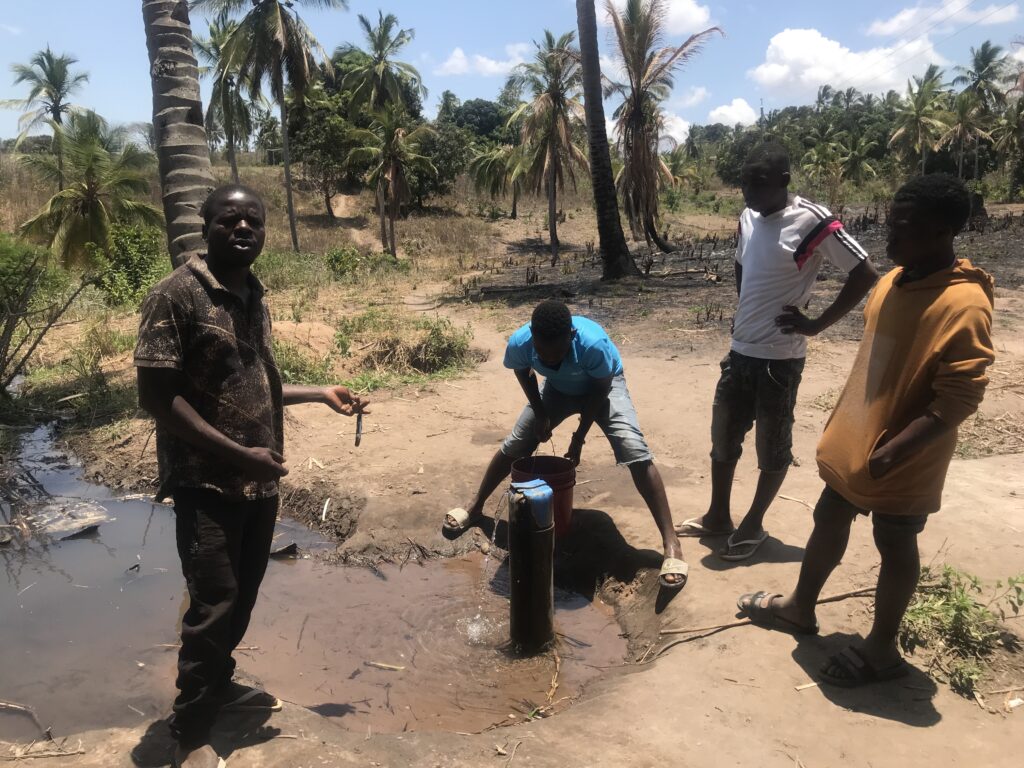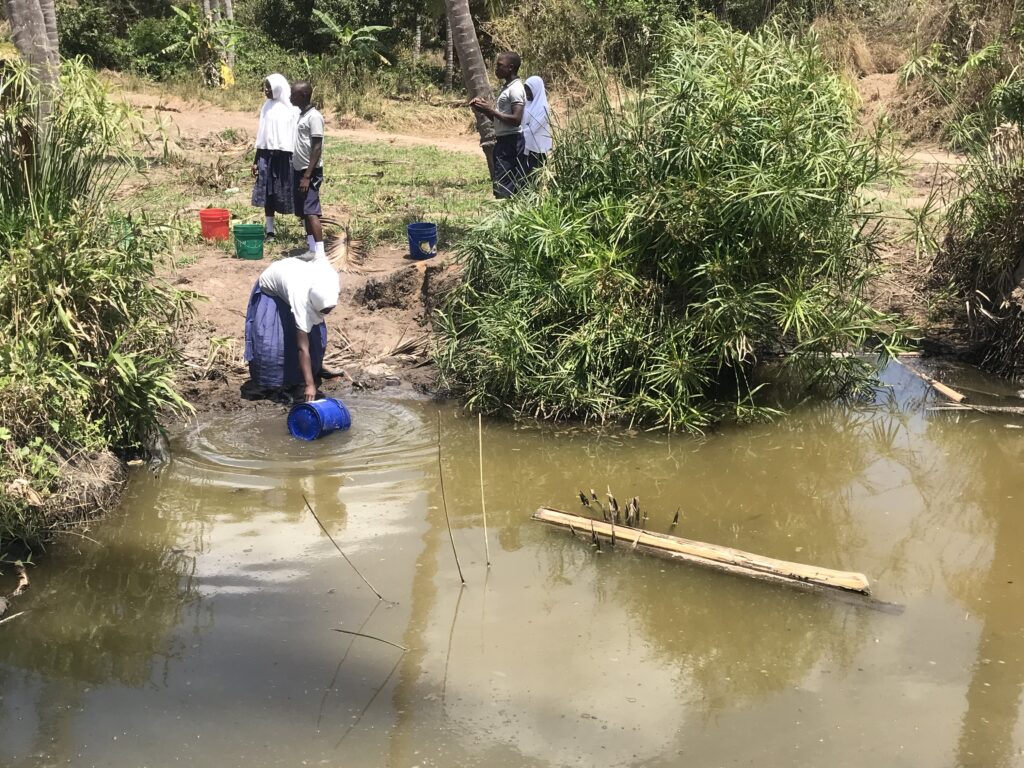It takes a four hours journey from Dar es Salaam to Njia Nne village in Kilwa District, Lindi Region. Then, you have to use a motor bike for a 50-minute trip before you arrive at Nahama village in Namayuni ward to witness a serious water shortage problem facing the villagers.
Nahama, with total population of 1,786 is among 33 villages in Kilwa district which are faced with serious shortages of clean and safe water.
Due to the acute water shortage facing the village, its residents, including pupils, are forced to use water from unreliable sources, including rain water swamps. They usually share this water with wild animals like hyenas as well as livestock following influx of pastoralists from other areas.
These sources serve them during rainy season only. When rains stop the swamps also dry and life gets worse. During dry seasons, people, notably women, can spent up to four hours in a day looking for water. This denies them enough time to engage on other economic and social activities.
A resident at the village, Asha Namweka, narrates: “We are forced to walk for two kilometres to nearby hamlet in search of water. We go there because there is water project which has been partially developed by the government. We get up at around 5 in the morning and after arriving at the well you might stay until 7 in the morning to get water,”
Another resident of the village, Mussa Abdallah, points out that though the government has implemented the water project but they are still in a limbo as the project has not been completed.
“We were told that this is very huge project which could supply water to all villages in Namayuni ward. But we are yet to fully benefit from it as it is yet to be completed. There is no proper distribution infrastructure in place,” he says.
A standard six pupil from Nahama primary school,Mwandabu Said, says due to water shortage sometimes they are forced to cut t heir studies and go look for water in nearby swamps.
“We have a lot of challenges at our school. We don’t have toilets and teachers are very few. At the same time we are required to deal with water shortage. We have come here to fetch water for school uses. When we return home in the evening we will also be required to come here to fetch water for home use, there is no enough time to study,” she laments.
2002 Water Policy
The 2002 Water Policy recognises that water is crucial to sustain life of people and other organisms. The policy also recognises that water is important for social and economic development of any community.
The policy notes that water availability is one of fundamentals uses in gauging development of a society. The policy notes that availability of clean and safe water was paramount in safeguarding and maintaining health of people.
Use of unsafe water contributes to spread of diseases and infections such as diarrhoea and dysentery. Therefore, supply of clean and safe water should be one of priorities of the government in the purpose of building a health society.

A resident of Namaha village shows a deep well, drilled by Ruwasa at the village but lack of distribution infrastructure renders the well inoperable
Village government comments
A village government chairman, Mohammed Ndewate, acknowledged the problem noting that it is more pronounced during dry season.
“We are in the middle of dry season and there are a lot of pastoralists who have flocked in our areas from other regions. They have a lot of livestock and we are competi8ng for water with them. They (pastoralists) water their cattle at a well which the government has constructed because there is no barrier. The problem is very serious,” he narrates.
As the chairman and villagers complain, water at a well dug by the government at Kiwanga hamlet flows freely to nearby farms because there is no water distribution infrastructure in place.
The chairman notes that when the well was being dug in 2018, they were told that the government is implementing a major project which will be able to supply water to Nahama, Namakoro, Ngorongoro, Namayuni and Liomanga villages in the Namayuni ward but after the well was completed nothing has been done.
“As a result, water from the well is leaking around the clock as there is no infrastructure to distribute it,” he says.
Water department manager
Talking to The Citizen, Rural Water and Sewerage Authority (Ruwasa) manager in Kilwa District, Engineer Ramadhan Mabula says out of 94 villages in the district they have managed to supply water to 60 villages. They are working to make sure that the remaining 34 villages, including Nahama, are reached as well.
He said the government has already dug a deep well at Nahama village which produces around 16,000 litres per hour.
“Our plan in the next financial year is to construct distribution infrastructure so as to distribute the water to the villagers in a friendly manner, we did not put the project in this financial year because we have many projects and some of them are so pressing, we will complete this project next year,” says Eng Mabula.
On spilt water at the well, he says: “Every year we set aside money for a particular activity and our major activities are surveying, digging wells and construction of infrastructure. We don’t have enough money so it is very difficult for us to implement all activities at once,”
He notes for instance that in 2022/23 financial year they have set aside Sh3 billion for implemented of water projects in six villages meaning that people from villages which have not been reached will continue to complain,” he elaborates.



Thank you for your sharing. I am worried that I lack creative ideas. It is your article that makes me full of hope. Thank you. But, I have a question, can you help me?
Thank you for your sharing. I am worried that I lack creative ideas. It is your article that makes me full of hope. Thank you. But, I have a question, can you help me?
nenarazili jste někdy na problémy s plagorismem nebo porušováním autorských práv? Moje webové stránky mají spoustu unikátního obsahu, který jsem vytvořil.